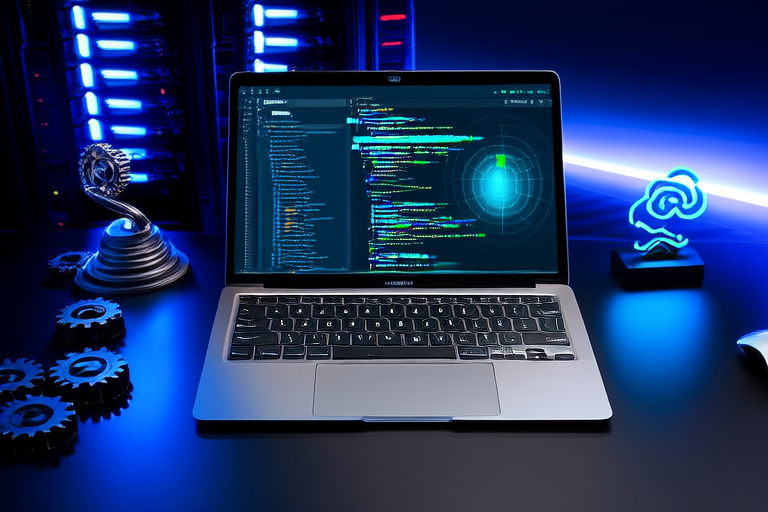The Role of Artificial Intelligence in Modern Software Development
Introduction
Artificial Intelligence (AI) has emerged as a transformative force across numerous industries, offering unprecedented capabilities in automation, analysis, and decision-making. In the realm of software development, AI has become an indispensable tool, enhancing productivity, accuracy, and innovation. This article aims to explore the specific roles and impacts of AI in modern software development, providing insights into how it is reshaping the landscape of coding, testing, design, and deployment.
Section 1: Overview of AI in Software Development
Key Terms: Artificial Intelligence (AI), Machine Learning (ML), Deep Learning (DL), Natural Language Processing (NLP).
AI encompasses a broad range of technologies designed to simulate human intelligence processes, including learning, reasoning, and self-correction. Over the years, AI has evolved from rudimentary rule-based systems to sophisticated algorithms capable of handling complex tasks. Today, software developers leverage AI tools to automate repetitive tasks, enhance decision-making, and optimize processes. Key AI technologies include machine learning, deep learning, and natural language processing, each contributing uniquely to the development lifecycle.
Machine learning enables systems to learn from data and improve over time without explicit programming. Deep learning, a subset of ML, uses neural networks to model complex patterns in large datasets. NLP allows machines to understand, interpret, and generate human language, facilitating communication between humans and computers.
Section 2: AI in Code Generation and Optimization
AI plays a pivotal role in automating code generation, streamlining the process of writing and refining code. Tools like GitHub Copilot and Tabnine use AI to suggest code snippets, predict developer intentions, and complete code blocks based on context. These tools not only save time but also ensure higher code quality by reducing errors and inconsistencies.
In addition to code generation, AI optimizes code performance by identifying bottlenecks and suggesting improvements. Tools like DeepCode and Codacy analyze codebases to detect inefficiencies and recommend optimizations. By leveraging AI, developers can achieve faster execution times, lower memory usage, and improved scalability.
Case Study: Microsoft’s use of AI in its Azure DevOps platform demonstrates significant improvements in code quality and efficiency. Through AI-driven code reviews and optimization, they have reduced bug counts and shortened release cycles.
Section 3: AI for Testing and Quality Assurance
AI enhances testing processes by automating repetitive tasks and enabling intelligent test case generation. Automated testing tools powered by AI can execute tests more efficiently and accurately than traditional methods. For example, Testim.io uses AI to adapt tests dynamically, ensuring they remain relevant as the codebase evolves.
AI also excels in predicting defects before they occur. Tools like Parasoft and SmartBear leverage machine learning algorithms to identify potential issues based on historical data, allowing teams to address problems proactively. Continuous integration and delivery pipelines benefit greatly from AI, which can monitor builds and deployments in real-time, ensuring seamless integration and deployment.
Example Tool: Appvance IQ is an AI-powered testing platform that has revolutionized testing practices by providing comprehensive coverage and intelligent test case generation.
Section 4: AI in Requirement Analysis and Design
AI aids in understanding user requirements by analyzing feedback, reviews, and social media data. Sentiment analysis and topic modeling techniques help developers gain insights into user preferences and pain points, enabling them to create more user-centric solutions. For instance, AI can analyze customer support tickets to identify common issues and prioritize features accordingly.
In user interface (UI) design, AI assists in creating intuitive and visually appealing interfaces. Tools like Adobe XD and Sketch use AI to suggest layout improvements, color schemes, and typography choices based on best practices and user feedback. Predictive analytics powered by AI can forecast future software trends and needs, helping teams stay ahead of the curve.
Section 5: AI in DevOps and Continuous Integration/Continuous Deployment (CI/CD)
The integration of AI into DevOps practices accelerates deployment cycles and reduces downtime. AI-driven monitoring tools continuously assess system health, detecting anomalies and potential failures before they impact users. For example, Datadog and Splunk use AI to analyze logs and metrics, providing real-time insights into system performance.
AIOps platforms like Moogsoft and PagerDuty leverage AI to manage incidents, prioritize alerts, and automate responses. These tools significantly reduce mean time to resolution (MTTR), ensuring minimal disruption to services. Real-world examples of companies successfully implementing AI in their CI/CD workflows include Netflix and Google, both of which have achieved faster deployment cycles and improved reliability.
Section 6: Ethical Considerations and Challenges
Ethical concerns surrounding the use of AI in software development include privacy issues and potential biases. Developers must ensure that AI systems respect user privacy and comply with data protection regulations. Additionally, AI models may inadvertently perpetuate biases present in training data, leading to unfair outcomes. Transparency and fairness are crucial in mitigating these risks.
Integrating AI into existing systems and workflows presents several challenges, including data quality, model explainability, and resource allocation. To overcome these challenges, organizations should invest in robust data governance practices, employ interpretable models, and allocate sufficient resources for AI implementation and maintenance.
Strategies for maintaining ethical standards include conducting regular audits, involving diverse stakeholders in decision-making, and fostering a culture of accountability.
Conclusion
AI has profoundly transformed modern software development, offering unparalleled opportunities for innovation and efficiency. From automating code generation and optimization to enhancing testing and quality assurance, AI has become an essential tool for developers. As AI continues to evolve, its impact on software development will only grow, paving the way for new possibilities in the field.
The future of AI in software development holds immense promise, with ongoing advancements in technology and increasing adoption across industries. By embracing AI responsibly and ethically, developers can unlock new levels of creativity and productivity, shaping the future of software development.




